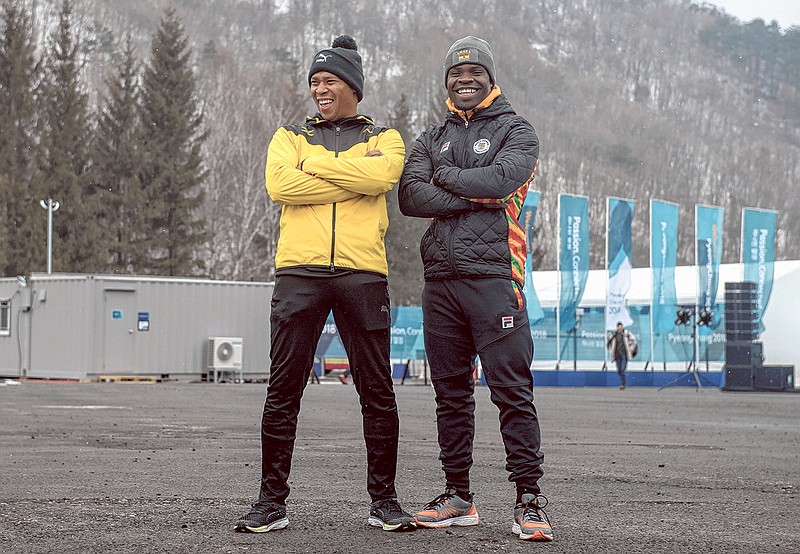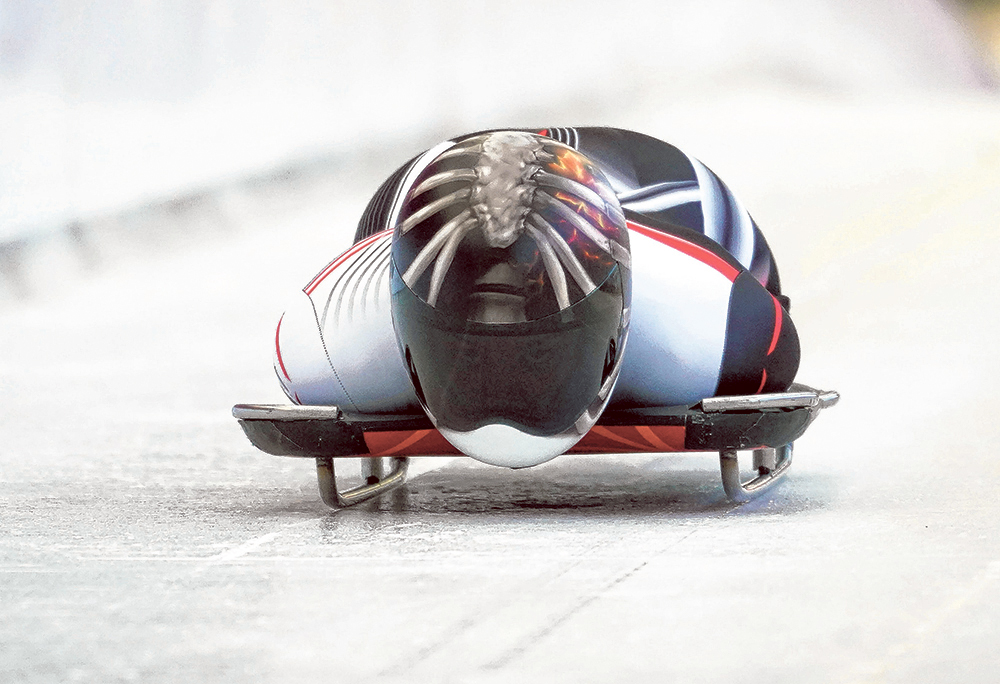PYEONGCHANG, South Korea - They are united here, at the Winter Games, at the bottom ranks of a sport considered among the most dangerous and daring, flopping belly first on a heavy sled and rocketing headfirst down a twisting and swirling ice track at 80 mph.
It's called skeleton, not because of what may break, but because of the bony appearance of the sled (or from a corruption of a Norwegian word for sled, "kjaelke"). Some call it plain crazy.
The two skeleton athletes here from Jamaica and Ghana, two countries where there is very little natural ice, if any, were apprehensive, too, at first, neither of them knowing much about the sport before giving it a shot.
Anthony Watson, 28, a sometime actor from New Jersey representing Jamaica through his father's lineage, recalled lying on the sled a few years ago as a training coach lifted his legs before that first run down, way down.
"He didn't tell me anything," he recalled. "He was just like, 'All right, see you at the bottom,' and he just shoved me on the track."
Akwasi Frimpong, 32, a once-promising track athlete in the Netherlands who immigrated there illegally from Ghana as a child and represents that country, remembers thinking on that first run: "Oh, man, I'm going to die. You want to brake, but there are no brakes. If there was a button to press stop, I would have."
But then he got to the bottom, alive, and recovered his athletic instincts.
"The competitiveness in you says why not go back up and make less mistakes and go even faster," he said.
Now, here they are, improbably, proudly, at the Olympics.
They met in October 2016 at a training camp for what are called emerging countries in the sport. They became fast friends, sharing a quick laugh, skin darker than their competitors', the bond of representing ancestral countries where they did not live and a determination to get to the Olympics in an unfamiliar sport.
They have trained together. They have lost together. They have prayed together.
They share a storage and preparation shed for their sleds here and also the bond of minor celebrity. They also get the same question a lot: What are you doing here?
To which they say: This is the Olympics. What is everybody else doing here? Dreaming big, testing their limits and, in some cases, sending a message.
"I want to break barriers, to show that people from warmer countries, black people, can do this sport as well," Frimpong said. "I want to write the history for my country and hope more kids come out of their comfort zone. And I want to gain experience for the next Olympics in 2022."
They finish each other's sentences and have their own rituals, a handshake and chest bump of solidarity, before and after races, as a way to ground themselves in a sport in which the color of their skin makes them stand out and sometimes invites skepticism.
"Before every run, we dap up, and at the bottom we dap up, and at the end of the day we dap," Watson said.
There are nearly 3,000 athletes here from 92 countries. Most of them will go home empty-handed, as Watson and Frimpong surely will. They were at the very bottom of the standings before the final runs Friday.
Yet they demand to be taken seriously as athletes, juggling news media attention while trying to focus and train.
"I don't want to be just a media guy," said Frimpong, who, like Watson, competed in the sport's world championships last year. "I want to show I can slide as well."
They both know skeptics and doubters remain. They read it on the faces of some athletes, but try to keep focus.
"This is bigger than ourselves," Watson said, as Frimpong nodded hard in agreement. "Which is why we connect so well, because you see a lot of athletes and the reason they are so depressed and on themselves and lashing out at other people is because this is literally all they have. When it's gone they are not going to have anything."
But this skeleton duo insist there is more, the accolades from young fans, the awe and wonder from fans in the countries they represent.
"We understand," Watson said, "there is a bigger audience, and that's why we have so much fun doing it while we are here."

